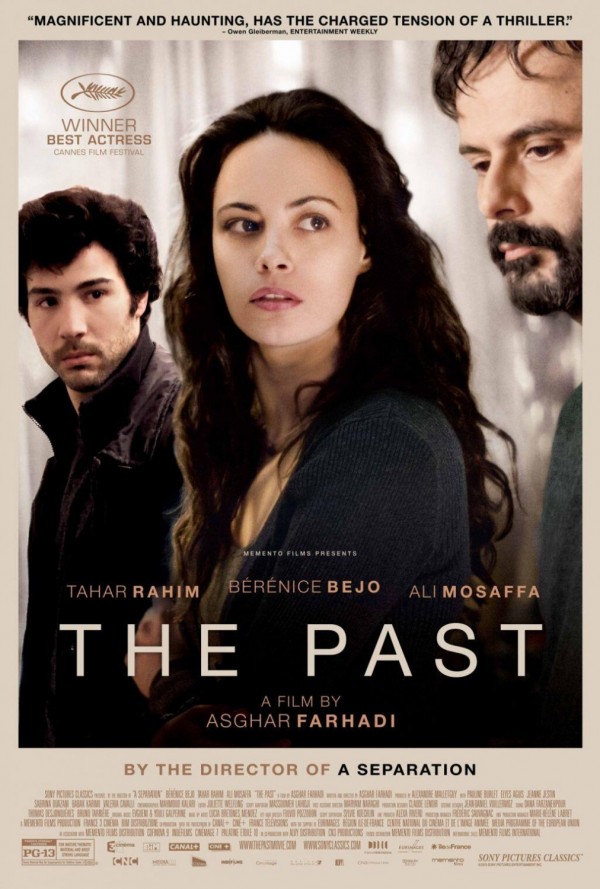THE PAST (2013, directed by Asghar Farhadi, 130 minutes, Iran/France)
BY DAN BUSKIRK FILM CRITIC Making a mystery out of everyday life, Iranian director Asghar Farhadi’s French-shot The Past quickly pulls us into a web of domestic intrigue. The family we meet is in severe dysfunction and at the root is an ever-looming past, an unspoken trauma whose role in which none of the characters truly understand. We arrive like Ahmad (Ali Mosaffa) understanding very little. He has returned to Paris from Tehran after a four year absence to sign divorce papers and end his marriage with Marie (Argentine actress Bérénice Bejo of the silent homage, The Artist) Ahmad was planning to stay in a hotel but when Marie insists he stay at their battered little cottage with her two daughters and a young boy, Ahmad suspects Marie has another agenda.
Something has happened to this family and Ahmad, despite being Marie’s soon-to-be ex, might be the only one with the distance to help this rag-tag family heal. I could fill in the details of this domestic drama but they are fairly mundane. It is director Farhadi’s elegant handling of the drama, dishing out clues piece by piece, that keep us thoroughly engaged in the film’s drama. As we meet new characters, Marie’s brooding teenage daughter Lucie (Pauline Burlet who played a young Edith Piaf in La Vie En Rose) or Marie’s live-in lover Samir (Tahar Rahim, star of the excellent 2009 prison film A Prophet) we can’t tell if they are antagonists or victims of the past. The film keeps you alert as you study the character’s actions, looking to see which family member is under-cutting who or which nugget of information illuminates some bewildering behavior we’ve seen..
Farhadi’s observational storytelling style is part of larger filmic trends that have moved away from the awkward exposition of characters’ in Hollywood films saying things like, “Mary, I’m your sister, your husband is getting out of prison after 17 years and our infuriating mother needs to know!” Farhadi’s more elliptical style demands more of our attention because he knows that attention is its own reward. The main character Ahmad is actually the least involved in this story of suicide, jealousy and romantic angst, but he’s Farhadi’s stand-in as he leads us through this wise and empathetic study of the mystery, emotion, and drama that takes shape whenever two or more people live together.

